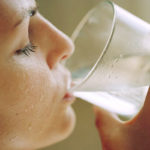Salmon has always been a beloved seafood choice for many, not only because of its delicious and unique flavor but also due to its exceptional nutritional value. Join us today as we delve into the question of whether eating salmon leads to weight gain and explore the healthiest ways to enjoy this fantastic fish!
1 Nutritional Profile of Salmon
Nutritional Value of Salmon
According to research, every 100 grams of salmon contains the following nutrients:
- DPA: 3.1g
- Healthy Fats (from salmon fat): 8 g
- Protein: 5 g
- Important vitamins such as A, D, and B12
- Trace minerals including zinc, iron, and potassium
- Provides both omega-3 and omega-6 fatty acids
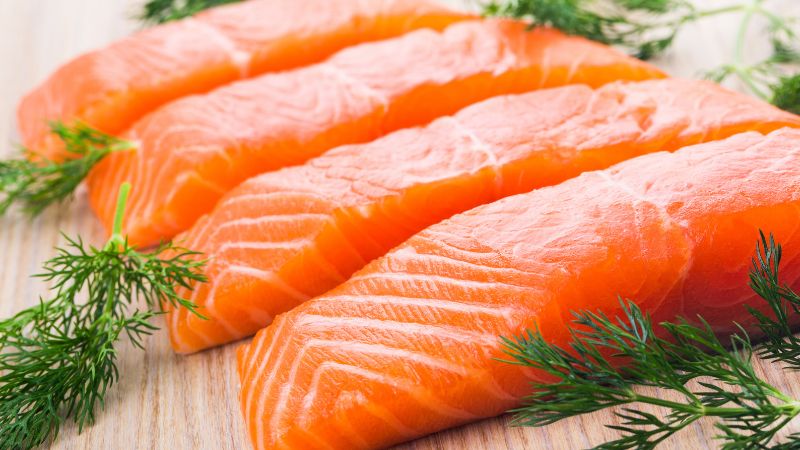 Nutritional Profile of Salmon
Nutritional Profile of Salmon
Benefits of Salmon
- Reduces the Risk of Heart Disease: Salmon is rich in omega-3 fatty acids, which not only lower the chances of cardiovascular issues but also help regulate blood pressure and reduce inflammation. It’s also a wonderful source of nutrition for children and pregnant women.
- Aids in Weight Loss: Thanks to its high protein content, salmon boosts metabolism. Omega-3 fats in salmon can also reduce belly fat and fat in the liver.
- Brain Health: Numerous studies indicate that salmon can restore brain function. Fish oil can protect brain functions, reduce depression, anxiety, and even Alzheimer’s disease, and it’s beneficial for fetal brain development.
- Healthy Skin: Salmon is packed with antioxidants, which significantly reduce free radicals that cause aging.
2 How Many Calories Are in 100g of Salmon?
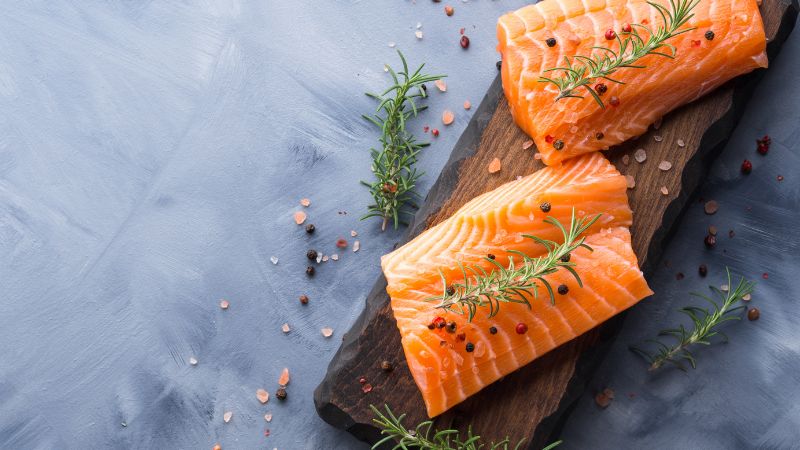 Calories in 100g of Salmon
Calories in 100g of Salmon
When you consume 100 grams of salmon, you’re taking in approximately 200 calories. This is quite an ideal number when compared to the daily caloric intake recommended for adults, which is between 2000 and 2500 calories. However, the number of calories can increase or decrease depending on the ingredients you pair with salmon in your dishes!
3 Does Eating Salmon Make You Fat?
 Does Eating Salmon Make You Fat?
Does Eating Salmon Make You Fat?
As mentioned earlier, salmon is quite nutrient-dense, which might lead some to worry about potential weight gain. However, studies show that while salmon is rich in omega-3 fatty acids, it’s very different from red meat.
A typical serving of salmon, which is about 80 grams, contains less than 4 grams of fat and fewer than 200 calories. Therefore, it’s highly effective for weight loss. Nevertheless, if you don’t know how to prepare it properly, you still run the risk of gaining weight.
4 Healthy Ways to Eat Salmon
Salmon Sushi
 Salmon Sushi
Salmon Sushi
For those who adore Japanese raw fish delicacies, salmon sushi is undoubtedly a favorite. Although simple to make, this dish captivates with its subtle and enticing flavors. The fresh, tender fish pairs beautifully with warm rice, a hint of salty soy sauce, and the pungency of pickled ginger.
For more information:
Salmon Porridge
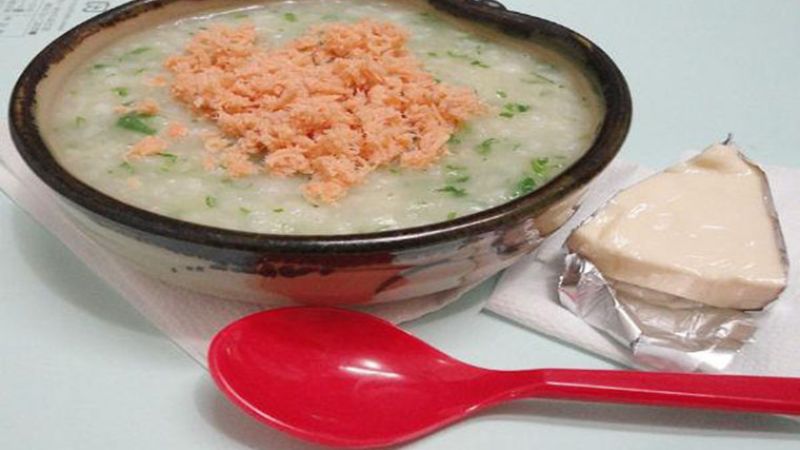 Salmon Porridge
Salmon Porridge
Salmon is a nutritious food that you should include in your child’s diet. Salmon porridge is easy to prepare, delicious, and packed with nutrients, making it a surefire way to please your little one. For added flavor, consider adding a dash of fish sauce after cooking.
For more information:
Salmon Egg Salad
 Salmon Egg Salad
Salmon Egg Salad
Not only is salmon meat nutritious, but so are its eggs. To retain the precious nutrients in the eggs, they are typically consumed raw. With just two steps, you can create a refreshing and nutrient-dense salmon egg salad.
For more information:
5 Notes on Eating Salmon for Weight Loss
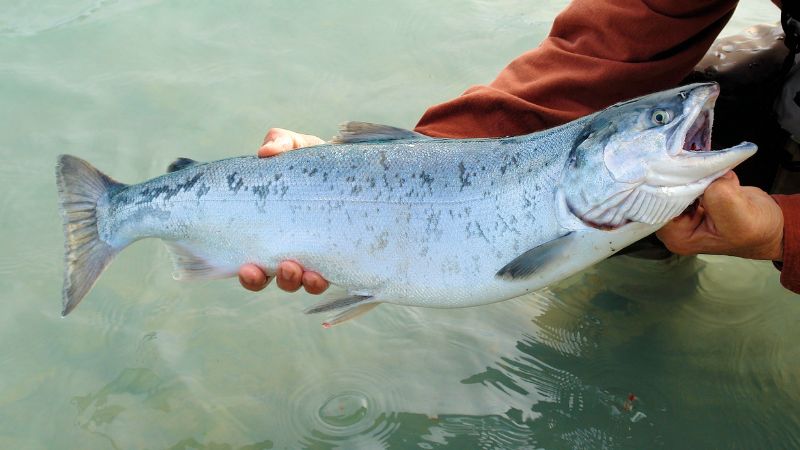 Notes on Eating Salmon for Weight Loss
Notes on Eating Salmon for Weight Loss
- According to experts, it’s recommended to consume around 140 grams of salmon per week. Excessive intake may lead to poisoning from mercury, arsenic, dioxin, and other toxins.
- Avoid overeating raw salmon, as it may cause infections from Vibrio vulnificus, Salmonella, or Vibrio parahaemolyticus.
- Additionally, those with stomachaches, colds, or sensitive stomachs should refrain from eating raw salmon.
- When feeding children, be sure to carefully remove all bones, as salmon bones are small and horizontally oriented.
- If you can’t consume the salmon right away, store it continuously at cold temperatures for no more than three months. Discard the fish if you notice any changes in color, smell, or liquid discharge.
- Individuals with certain conditions should avoid eating salmon: gout, cirrhosis, liver dysfunction, seafood allergies, digestive disorders, etc.
This article has hopefully provided you with some basic insights into salmon, answering questions about its potential impact on weight gain and how to incorporate it healthily into your diet.
Source: Vinmec



























